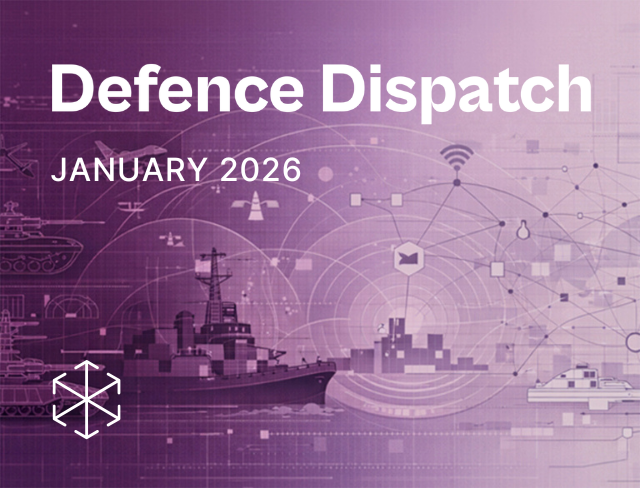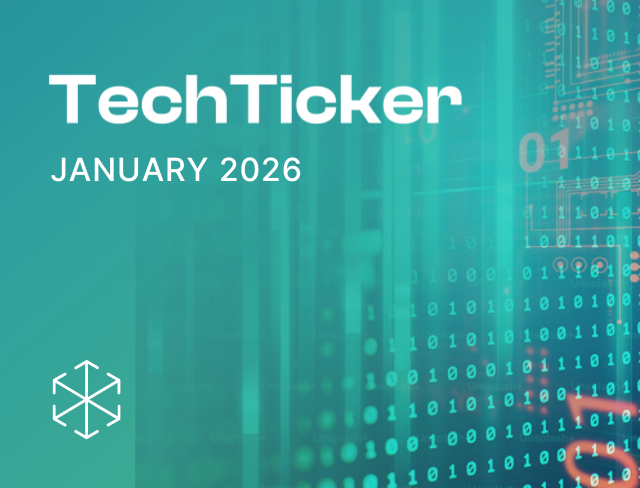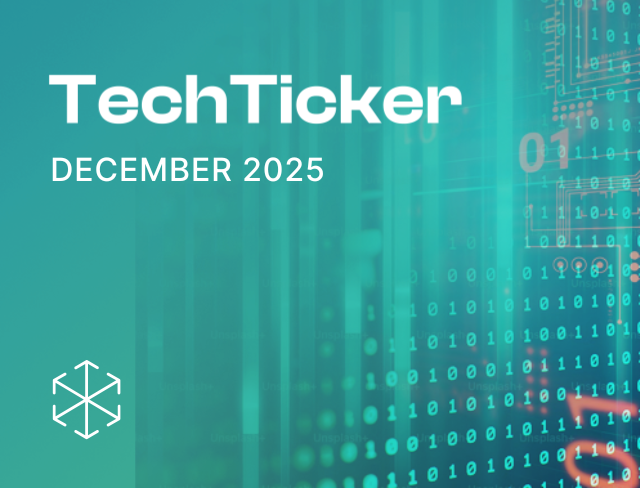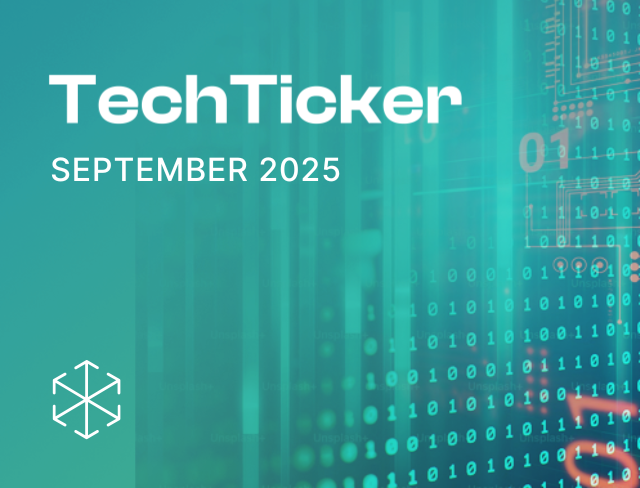“What we call chaos is just patterns we haven’t recognised.”
A lot happened in the FinTech verse last month. It was chaotic, exciting, and futuristic. In this FinTales edition we explore these three patterns in the chaos:
First, RBI and the Government are keen to promote FinTech in financial services. Blockchain may change the face of banking. And E-RUPI offers a fascinating value proposition.
Second, RBI recognises the value that non-bank tech players offer. RBI green-lit membership of non-banks in NEFT and RTGS.
Third, RBI and judiciary find the increasing influence of non-banks on financial services concerning. So, non-banks must follow new outsourcing norms. Mastercard faces a ban on its operations. And Delhi HC wants regulation of digital lending platforms.
We can’t wait to tell you more.
Let’s dive in!
RBI green-lights non-banks’ RTGS and NEFT membership
Last month RBI opened-up the RTGS and NEFT membership for non-banks. RTGS and NEFT are the RBI owned and operated centralised payment systems (CPS). Real time gross settlements (RTGS) is used to process transactions of more than two lakh rupees. And settlements happen in real-time in RBI’s books. National Electronic Fund Transfer (NEFT) can be used to process a transaction of any value. NEFT transactions are settledin half-hourly batches. So far only banks and some other financial institutions could become CPS members. Banks provided settlement services to non-banks. For instance, to settle a PPI holders’ payment to a merchant, PPI issuers had to route transactions through banks (directly or through a payment aggregator).
But this is set to change. Now, non-banks can directly initiate and receive payments (from banks, other non-banks and customers) through RTGS. They can use NEFT to initiate and receive retail payments.
PPI issuers, card networks and white label ATM operators are the first to enter the club. Other payment service operators will become members (of CPS) in next phases. RBI’s decision resonates with James Surowiecki’s idea that regulation isn’t an obstacle to thriving free markets; it’s a vital part of them. This move will open new avenues in the digital payment network to non-banks. Non-banks will also get separate IFSC codes. They can maintain current accounts and settlement accounts with RBI. And communicatedirectly with RTGS and NEFT systems.
With this change, non-banks can avoid the cost of banks’ settlement services. Non-banks can also avoid delays in execution of settlement instructions by banks. So far, key innovations by fintech players have been superficial (limited to customer interface). Non-reliance on banks will ensure a level playing field (between banks and non-banks). And promote competition. Non-banks can implement better data protection measures. As they will not have to share customer information and fund flows (with banks) for banks’ settlement services.
This opens up many possibilities for tech players in the payment ecosystem. This may usher in a new breed of payment players which can offer only settlement services (on the rails of NEFT and RTGS). This will make fintech players independent of banks’ legacy infrastructure. Non-banks will have complete ownership of customer data and journey. Pretty exciting.
RBI steps-up vigil over outsourcing by PSOs
Payment service operators (PSOs) (like PAs and PPI issuers) offer a bouquet of financial services. Banks as well as non-banks can act as PSOs. They outsource some of their specialised activities to third party service providers. This can expose PSOs to vulnerabilities of the service providers. And pose additional security and operational risks. So, RBI regulates outsourcing of financial services by PSOs.
So far, only banks and NBFCs had to follow RBI outsourcing guidelines to outsource any part of financial services. Now, RBI has notified similar outsourcing norms for non-bank PSOs. These norms prohibit the PSOs from outsourcing any core functions (including risk management, internal audit and KYC compliance). PSOs have until 31 March 2022 to comply with the new guidelines.
The most striking aspect of the new outsourcing norms is their resemblance to existing outsourcing norms (for banks and NBFCs). In fact, the new norms also prescribe some additional obligations for non-bank PSOs. Like the PSOs need to ensure compliance with RBI data storage norms by third party service providers.
The PSO outsourcing norms underpin non-bank PSOs’ ever-increasing importance in the payment ecosystem. And the consequent systemic risk. This also indicates that future regulation of non-banks may be at par with banks. Non-banks may see tighter prudential norms. To avert instances like Juspay data breach, RBI may ask non-banks to have more risk averse IT infrastructure. Non-banks may see increase in their compliance obligations. Which will impact their agility, cost-efficiency and innovations. If non-banks want parity with banks in terms of services they can offer, RBI’s expectation of additional compliance checks (for non-banks) is fair. But non-bank PSO regulations should be rational and proportionate to the actual risks posed. And they should not be motivated by achieving regulatory uniformity. Fingers crossed.
Ripple effects of the MasterCard ban
We briefly discussed RBI’s ban on Mastercard in our last FinTales edition. To recap, RBI asked Mastercard to stop onboarding any new debit, credit or prepaid card customers from 22 July 2021. As Mastercard failed to comply with RBI data localisation norms. What led to and ensued after the ban deserves a follow-up.
Mastercard had 3 years to comply. But it failed. On the other hand, Visa complied with data localisation norms. RBI has time and again reiterated its stand on data localisation. And held its ground despite industry objections.
Mastercard is fighting to overturn the ban. To ensure compliance (with data localisation norms), it submitted a new audit report to the RBI within a week of the ban.
Visa and NPCI’s RuPay cards are Mastercard’s competitors in India. And the biggest beneficiaries of the ban. Mastercard was the exclusive partner for RBL Bank, Yes Bank and Bajaj FinServ. These entities may soon shift to Visa and RuPay. This will mean further concentration of risks in Visa and RuPay. Banks do not earn any MDR on RuPay. So, they do not want to issue RuPay card. So, that leaves us with Visa. And if Visa fails, there is no alternative card network. No plan B. Concerning to say the least. So, it will be best (not only for Mastercard) but for the entire payments ecosystem if RBI revokes the ban.
Delhi HC’s nudge to regulate digital lending platforms
Digital lending platforms have been under RBI scanner for long. We wrote about this in FinTales January Edition. To recap, digital lenders are pivotal for unmet credit needs. Lending platforms partner with regulated entities like banks and non-banking financial companies (NBFCs). They are not directly regulated by the RBI. All was going well, until a few rogue lending platforms gained notoriety for charging outrageous interest rates, harassing borrowers, and misusing personal data (of borrowers). RBI issued repeated warnings to banks and NBFCs to keep the lending platforms in check. And finally, createda working group to form regulations for the lending platforms.
In the meantime, a PIL was filed in the Delhi HC against the exorbitant interest rates charged on some digital lending platforms. The PIL sought regulation of digital lending platforms. Responding to the petition, the Delhi HC urged the Government and RBI to take quick action on this issue. Interestingly, RBI’s counsel responded that digital lending platforms do not fall within the RBI’s purview. RBI punted the responsibility to the Central Government, asking it to regulate digital lending platforms. But the Delhi High Court was reluctant to accept the RBI’s stance. It urged RBI to take action. Or at least regulate the interest rate charged by lending platforms.
Right after Delhi HC issued these directions, RBI’s governor mentioned to the press that the report of the working group will be released this month. With this, the digital lenders have (once again) expressed concerns against tight regulations. Heavy-handedness might add further strain on the industry. Which is already besieged by the pandemic that led to spiked loan defaults. We’ve said this before and we’ll say it again, this is a fledgling industry, it needs light touch and self-regulation. The entire industry must not pay for callousness of a few players.
Transformative, disruptive, and revolutionary: All hail the blockchain technology!
Bitcoin, Ethereum, NFT – all use blockchain technology. And now blockchain is all set to disrupt the Indian financial service space.
This buzz is courtesy Indian Banks’ Blockchain Infrastructure Co (IBBIC). IBBIC is a consortium of 18 Indian banks. IBBIC will design distributed ledger technology-based solutions (DLT) for the financial sector. Reportedly, IBBIC has also received an RBI assent.
IBBIC’s first product launch is exciting. IBBIC will use Infosys Finacle Trade Connect platform to automate the process of letters of credit (LC) issuance (by Indian banks). Banks issue LCs as a payment guarantee on behalf of their customers. To refresh your memory, mismanagement of LCs was the root cause for 114 billion rupees PNB scam by Nirav Modi.
IBBIC’s solution will make the LC issuance process transparent, secure, and efficient. Reports suggest that DLT can reduce the time taken for LC processing by 75%. Chances of fraud are minimal. As a fraudster must hack the majority of blockchain nodes to fool the system. Businesses will benefit too; as guarantees and loans will be processed faster. This also opens up infinite possibilities for private fintech players. They can offer innovative blockchain based solutions like DLT for KYC of users and faster reconciliation of transactions.
NPCI’s e-RUPI might do wonders for welfare delivery
Don’t be startled by the name. The e-RUPI is not digital currency. It is a pre-paid voucher introduced by NPCI to enable cashless welfare delivery. The government can transfer e-RUPI to a beneficiary on her cell-phone (as a QR code or SMS). The beneficiary does not need a bank account to use e-RUPI. e-RUPI is person and purpose specific. So, if a beneficiary receives e-RUPI for medical care, she cannot use it to buy electronics. The details of the beneficiary are not disclosed to merchants. So, e-RUPI is a safe, secure, and seamless process for welfare delivery. e-RUPI is powered by UPI. And 11 banks have gone live (with NPCI) for e-RUPI transactions.
e-RUPI will be valuable for private entities too. They can use it for employee welfare and corporate social responsibility programs. Another possible use-case is for lenders offering open credit to first time borrowers. The lenders will be able to monitor the purpose for which funds are used. Borrowers will not need a bank account to avail e-RUPI.
Some experts believe this can be a testing ground for a centrally backed digital currency. As the government will be able to identify possible flaws in the payment ecosystem (through e-RUPI). Others are optimistic that this is indicative of government’s openness to digital currencies (like bitcoins).
But, with a promise of data security, targeted delivery, digitization, and financial inclusion, e-RUPI is the payment instrument for future.
Tell us what you think about the developments we covered. Or if you’d like us to cover any other development in the next edition.
Write to us at contact@ikigailaw.com
See you in September!
Yours,
Ikigai Fintech Team










